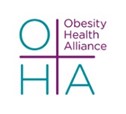£49.99
5 hours
Obesity Management: From Strategy to Practice
Thursday 25 January 2024, 9:45 – 16:15 GMT
5 hours
Obesity Management: From Strategy to Practice
Thursday 25 January 2024, 9:45 – 16:15 GMT
5 hours
£49.99
5 hours
OPEN TO ALL HEALTH PROFESSIONALS, TUTORS AND STUDENTS
Obesity is now recognised as one of the most important public health problems facing the world, and exploring diverse and compassionate approaches to support individuals living with obesity is crucial. This full-day event will provide topical updates on the UK’s Obesity Strategy, national guidelines and the new integrated care system approach, before delving into how this impacts day-to-day practice in obesity management services.
Obesity is a risk factor for several chronic diseases, including diabetes, cardiovascular diseases and cancer. It is also a very complex health condition caused by a multitude of different factors, many of which are outside of a person’s control. Therefore national obesity management strategies and services must work together to provide adequate support to individuals living with obesity.
This event aims to provide professionals working in or interested in the area of obesity and weight management with the very latest updates from strategy to practice. We will start the day by hearing lived experiences of individuals living with obesity, which will highlight examples of weight stigma, and weight bias, as well as the personal challenges and barriers that people live with. It is vital to keep this in mind throughout the symposium and beyond.
Presentations will cover:
- Lived experiences from individuals living with obesity
- Updates on the UK Government’s Obesity Strategy and NICE Guidelines
- New integrated care systems (ICS)
- The role of obesity pharmacotherapy
- Use of digital technology
- National and local programmes
- Group education vs 1:1 care
- The holistic self-kindness approach
- Improving nutrition training for medics
WATCH THIS EVENT TO:
GAIN A CLEAR UNDERSTANDING OF:
- The current status of the UK government’s obesity strategy
- National guidelines for obesity including updates from the NICE guidelines
- The role of integrated care systems in the context of managing obesity
- Practical approaches to obesity management encompassing pharmacotherapy, digital technology, national and localised programmes, group education and integration into medical education
BE AWARE OF
- Recommended assessment tools within obesity guidelines, such as the waist-to-hip ratio, and limitations
- Metrics used to measure success within various obesity management strategies
- The potential impact of various obesity management strategies on personal experiences
- The role of the medical profession in compassionate care and obesity management
BE ABLE TO
- Determine the appropriate timing for employing different routes in the management of obesity
- Assess and measure outcomes of success within obesity management strategies
- Reflect on one’s understanding of lived experiences through obesity management and consider ways to enhance care for those living with obesity
*RECORDING TIMESTAMPS:
- 12 mins: The Lived Experience – Paul and Angela Chesworth
- 52 mins: Obesity Strategy: Current policy and future directions – Dr George Sanders
- 1 hour 29mins: Updated NICE Guidelines: Waist to height ratio – Dr Margaret Ashwell OBE
- 2 hours 18 mins: Integrated Care Systems: The honest truth – Susannah Howard
- 3 hours: Pharmacotherapy in Obesity Management: An update – Dr Alex Miras
- 3 hours 55 mins: Digital Health: Not a fleeting trend – Lucy Jones
- 4 hours 35 mins: Implementing Weight Management Intervention Programmes in England – Professor Paul Gately
- 5 hours 22 mins: Group Programmes vs 1:1: Using a holistic approach – Jill Whitehall
- 6 hours 3 mins: Nutrition in Medical Educationn – Bridging theory to practice – Elaine Macaninch
CHAIR:
• Dr Adrian Brown RD
NIHR Advanced Fellow and Senior Research Fellow and Lecturer in Nutrition and Dietetics, University College London
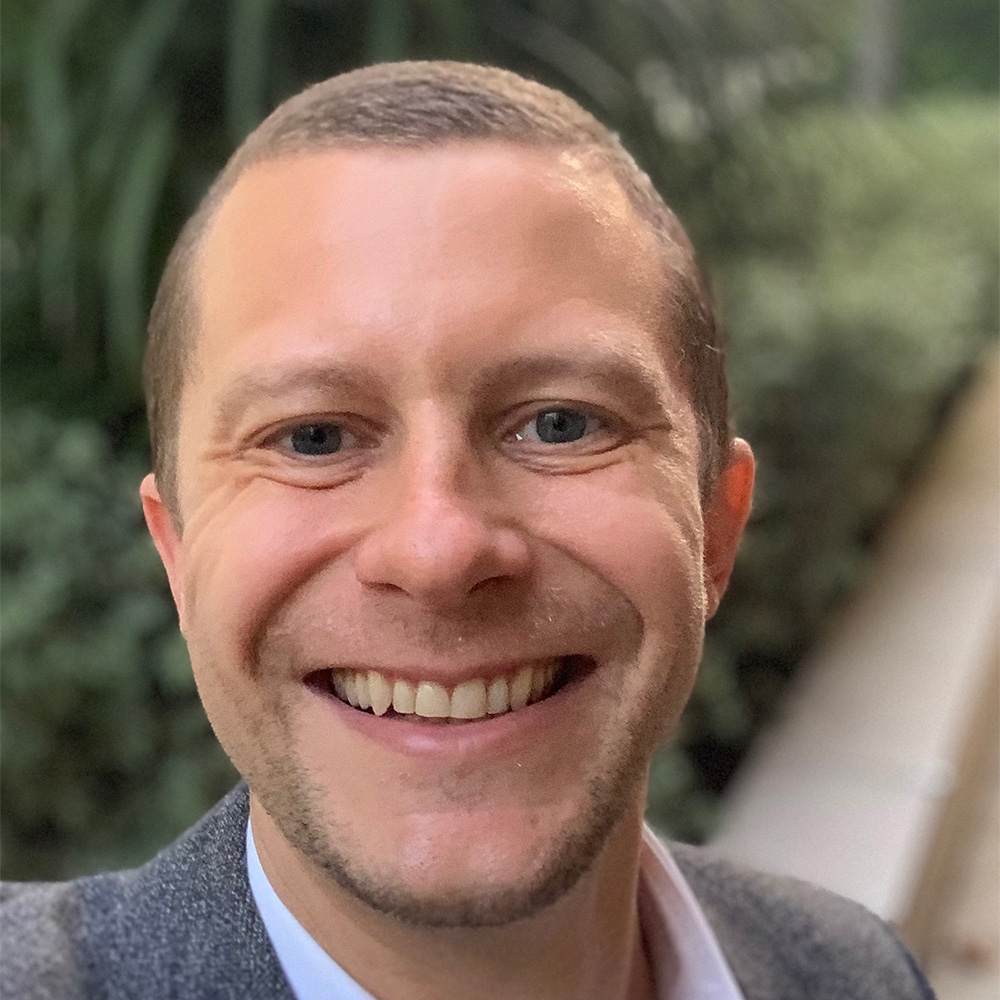
Chair introduction
Dr Adrian Brown
NIHR Advanced Fellow and Senior Research Fellow and Lecturer in Nutrition and Dietetics, University College London
Dr Adrian Brown’s biography
Dr Adrian Brown is an NIHR Advanced Fellow and Senior Research Fellow at University College London. He is a Senior Specialist Weight Management dietitian with over 17 years of experience and a PhD in Medicine from Imperial College London. Adrian is Chair of the Obesity Specialist Group of the British Dietetic Association.
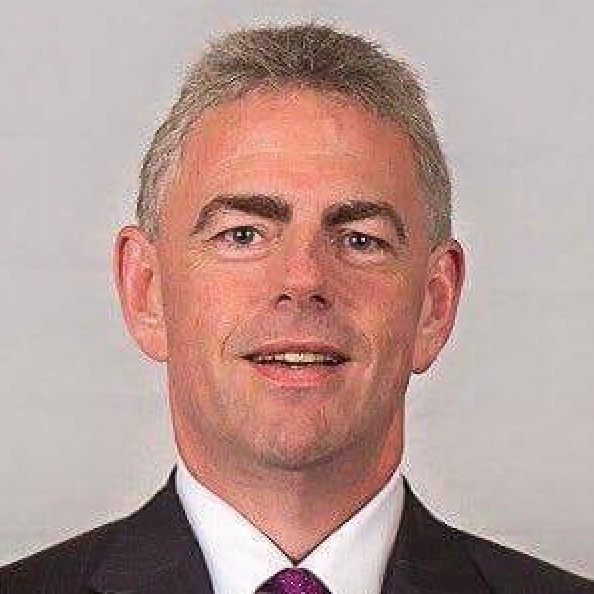
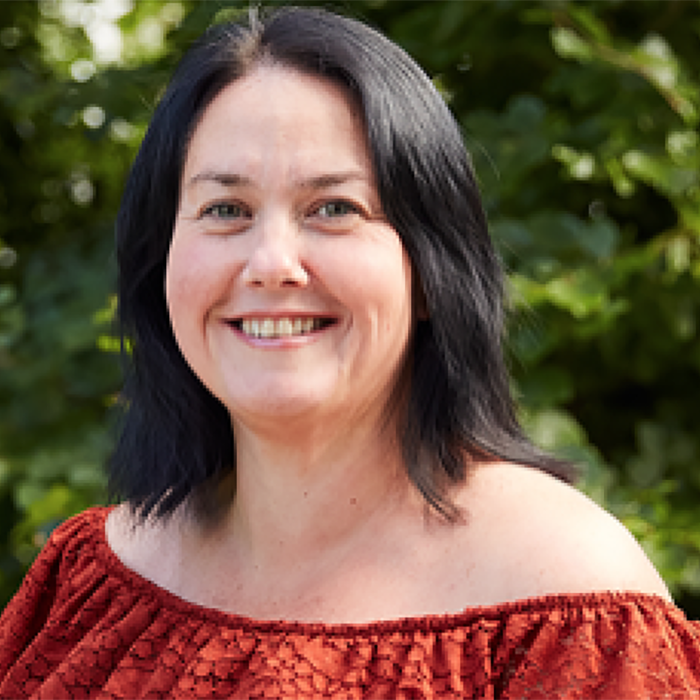
The Lived Experience
Paul Chesworth
Independent Volunteer Patient Advocate
Angela Chesworth
Independent Volunteer Patient Advocate
Paul and Angela Chesworth’s Biography:
Angela and Paul share their lived experiences of Obesity. Feeling passionate about having their voice heard to help change the narrative around Obesity by highlighting the complexities, weight stigma and bias a person faces and the benefits receiving Bariatric surgery and the importance on not just focusing on weight loss but the much more valuable health gains.
Session outlines and learning objectives
Do you know someone personally who is living with obesity? A mother, father, sister, brother, friend or colleague. Do you see the weight stigma and bias they receive? Do you know how they really feel about their body? Are you wanting to talk about obesity but don’t know what to say? In this session, you will hear examples of weight stigma, weight bias, personal challenges and barriers that people live with.

Obesity Strategy: Current policy and future directions
Dr George Sanders
Senior Research Fellow in Public Health & Obesity, Obesity Institute Theme Lead – Weight Management & Wellbeing, Leeds Beckett University
Dr George Sanders’s biography
George is a Senior Research Fellow in Obesity & Public Health at Leeds Beckett University and a theme lead for the Obesity Institute. Working in applied settings he has extensive knowledge beyond the literature understanding considerations for real world service provision implementation and evaluation across the life course.
Session outlines and learning objectives
This talk will provide an update on the current UK obesity policy focus and targets, including an insight into how the newly formed Obesity Institute at Leeds Beckett University is leading the way in translating real-world research into national policy and practice recommendations among people living with obesity.
Watch this session to:
GAIN CLEAR UNDERSTANDING OF:
- What the issue is
- Current national policy objectives
- Latest updates from OHID on where we are
BE AWARE OF:
- Inequality and inequity among people living with obesity
- Leeds Beckett Obesity Institute mission and vision
- Research opportunities within the Leeds Beckett Obesity Institute
BE ABLE TO:
- Articulate current challenges in tackling obesity at a large-scale
- Understand the importance of Patient & Public Involvement and Engagement (PPIE)
- Access novel placement opportunities within the Obesity Institute
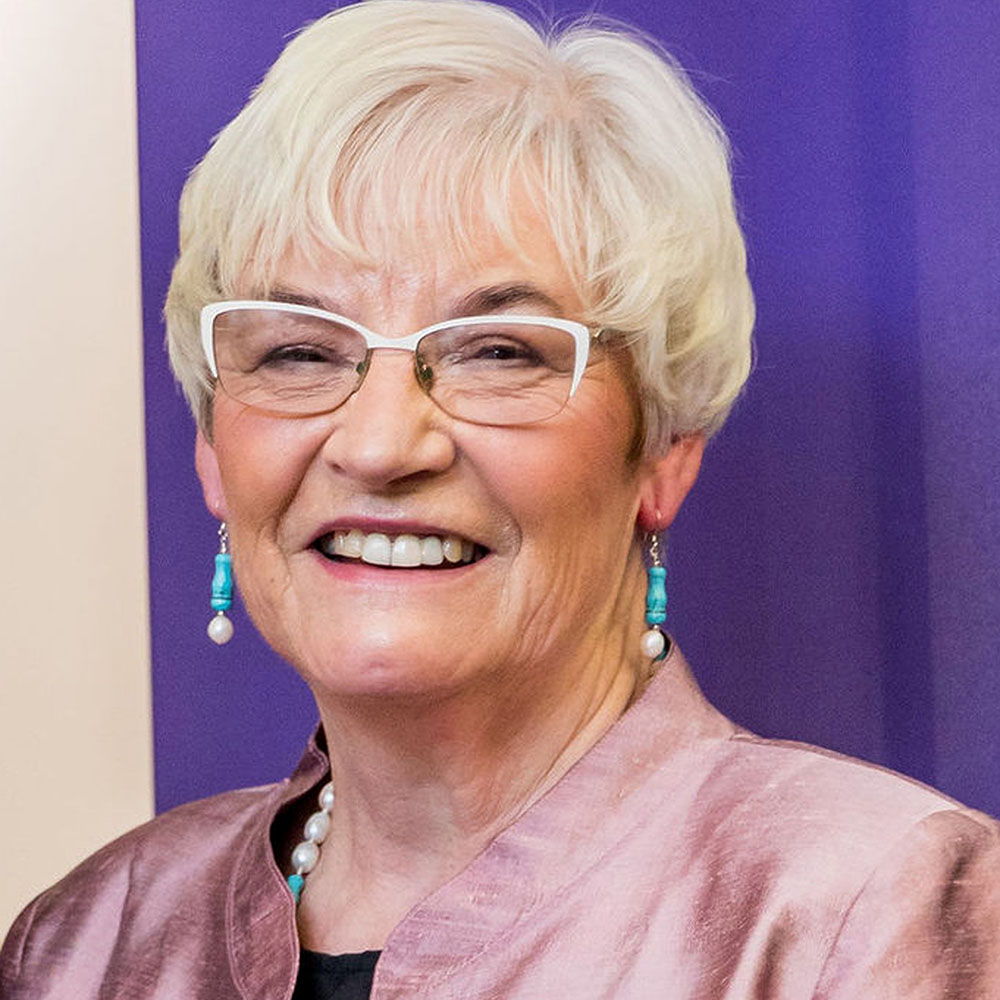
Updated NICE guidelines: Waist to Height Ratio
Dr Margaret Ashwell OBE
Ashwell Associates
Dr Margaret Ashwell OBE's biography
Margaret has been a Research Scientist with the Medical Research Council, Principal of the Good Housekeeping Institute, Science Director of the British Nutrition Foundation and, for more than 28 years, Director of her own Consultancy. She is immediate Past President of the Association for Nutrition. She received the Caroline Walker Trust Lifetime Achievement Award this year and has just been made its Vice President.
Session outlines and learning objectives
Anthropometric measures to assess health risk have changed rapidly in the last 50 years, from Weight for Height Charts, through Body Mass Index (BMI) and now to Waist-to-Height Ratio in the updated NICE guidelines published in 2022. The ratio method and the boundary values of 0.4, 0.5 and 0.6 for adults and children of all ethnic groups have been included in the latest NICE guidelines on the basis of an extensive evidence review.
In this session, we’ll hear about the evidence linking anthropometric measures to health over the years and the importance of simplicity in communication of important health tools, i.e. “Keep your waist to less than half your height”, so a simple piece of string is all everyone needs to check on their health risk.
Watch this session to:
GAIN CLEAR UNDERSTANDING OF:
- The importance of central adiposity rather than weight in determining health risk
- The mechanisms by which central adiposity might harm health
- The importance of simplicity in communication of important health tools
BE AWARE OF:
- Types of evidence linking anthropometric measures to health
- How long it takes for evidence to reach recommendations
- How long it takes for recommendations to be put into practice
BE ABLE TO:
- Calculate waist-to-height ratio
- Explain to someone why waist-to-height ratio is important
- Read the NICE report and the evidence base
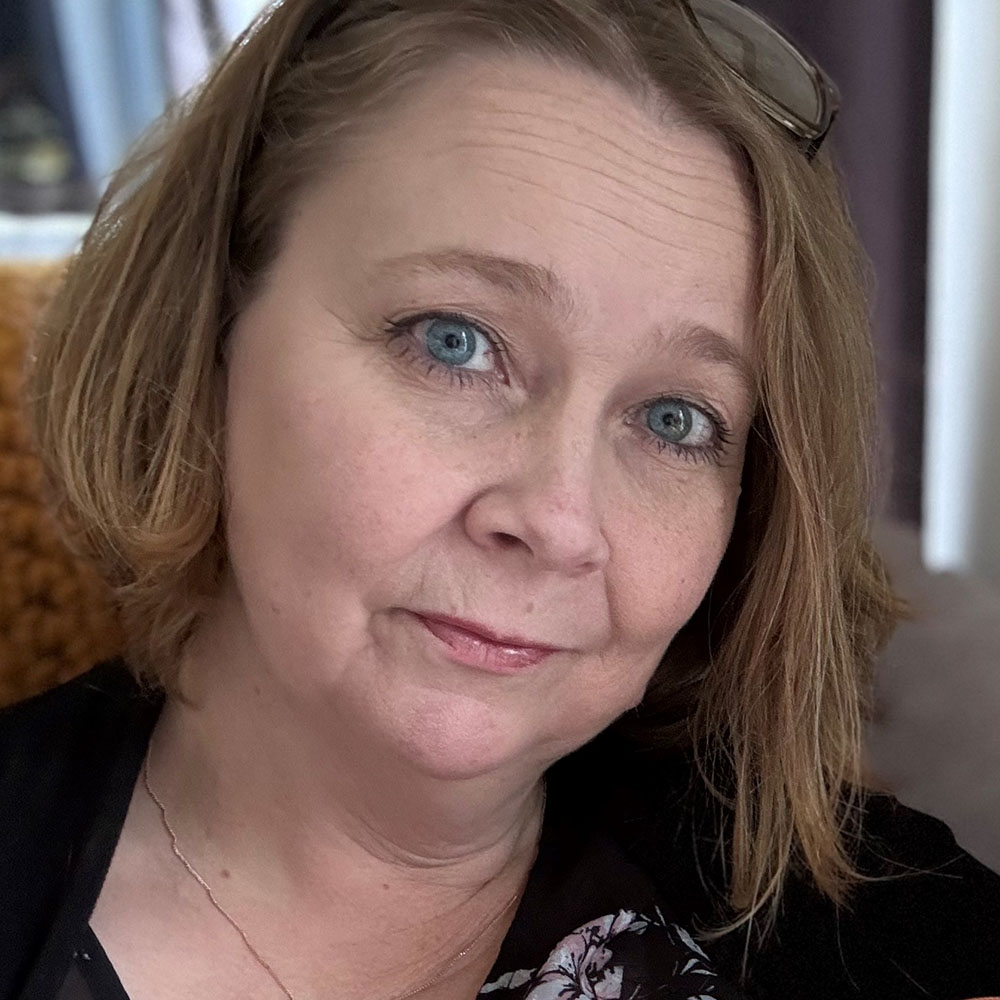
Integrated Care Systems: The Honest Truth
Susannah Howard
Integrated Care Partnership (ICP) Director, NHS Suffolk and North East Essex Integrated Care Board
Susannah Howard’s biography
Originally a psychologist, in the early part of her career Susannah worked in mental health at The Royal College of Psychiatrists Research Unit, Department of Health and Commission for Health Improvement. She led the Eastern Development Centre and then the unique NHS based business unit ‘Enable East’ for which she was named Essex ‘Business Woman of the Year’ in 2013. She has been an annual Guest Lecturer at Harvard University Extension School she has also worked with the World Health Organisation (WHO) throughout her career, most recently in South East Asia. She is a member of the All Party Parliamentary Group and National Strategic Council for Obesity and has held over £12 million in grants for the Big Lottery Fund. Susannah has been part of the leadership team for the Suffolk and North East Essex ICS since 2016 – initially as the ICS Programme Director and then Integrated Care Partnership (ICP) Director.
Session outlines and learning objectives
This talk will provide an introduction to the emerging new world of Integrated Care Systems (ICSs), how they should work in the future and a discussion of some of the current challenges.
Watch this session to:
GAIN CLEAR UNDERSTANDING OF:
- The landscape for health and care reform
- The implications of the Health and Care Act
- Opportunities for ICSs to drive change
BE AWARE OF:
- Challenges in the development of ICSs
- ICSs from the perspective of local government and VCFSE sector
- Culture in ICSs
BE ABLE TO:
- Understand the difference between ICS, ICP and ICB
- Be more confident about working in partnership with ICBs
- Understand the complexity of ICSs
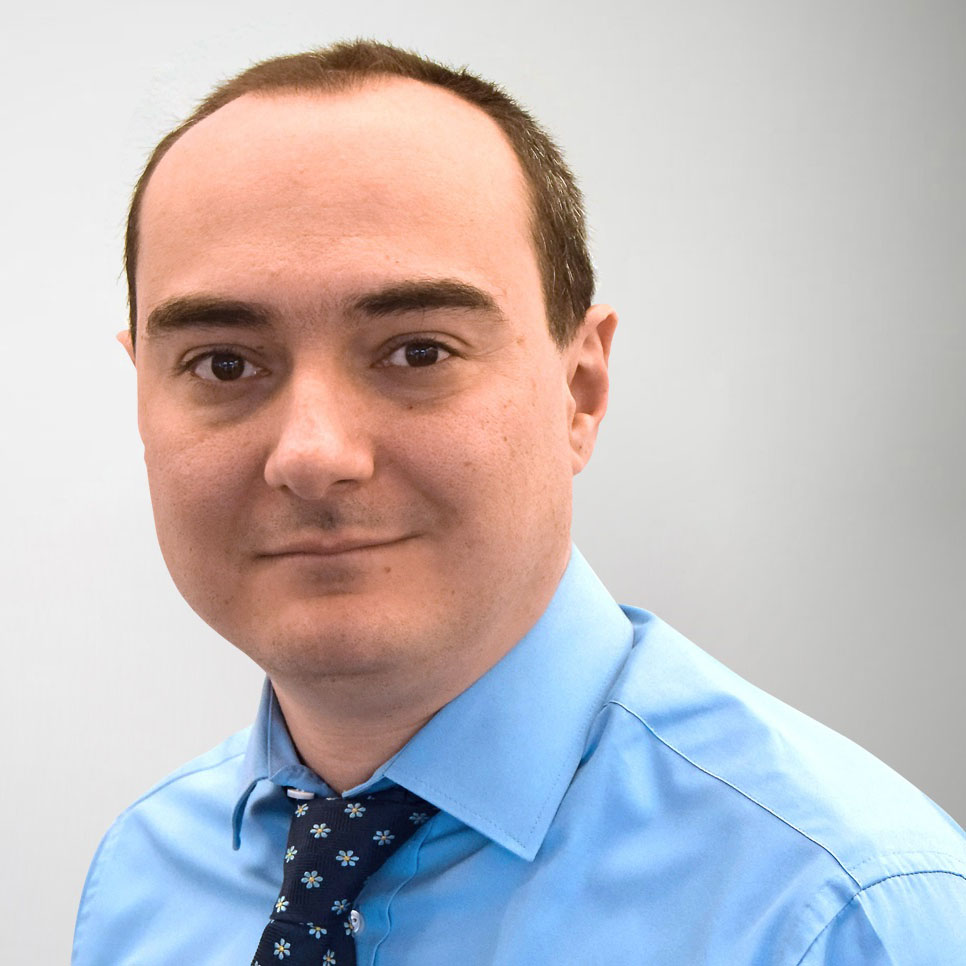
Pharmacotherapy in obesity management: An update
Dr Alex Miras
Professor of Endocrinology, Ulster University
Dr Alex Miras’s biography
Alex is Professor of Endocrinology at Ulster University. His clinical and research work focus solely on Obesity and type 2 diabetes. He has contributed to the clinical management and research in Obesity over the last 12 years, through his work at a high throughput Obesity Centre. The specialist interests of his research group are the mechanisms of action of interventions for obesity, focusing on pharmacotherapy, medical devices and obesity surgery.
Session outlines and learning objectives
This session will outline the current, new and pipeline drugs for obesity, the evidence supporting them and potential side effects as well as how to explain how they work to patients that may benefit from them.
Watch this session to:
GAIN CLEAR UNDERSTANDING OF:
- The current, new and pipeline drugs for obesity
- Efficacy, safety, impact of hard outcomes and cost-effectiveness
- Unmet needs in obesity pharmacotherapy
- Use of pharmacotherapy in the NHS
BE AWARE OF:
- Indications for medication in the public and private sector
- Effect of the drugs on weight loss and end-organ damage
- Common and rare side effects
BE ABLE TO:
- Explain the mechanism of action of the drugs to a patient
- Explain possible side effects and how to deal with them
- Define the role of the dietitian in the pharmacotherapy pathway

Digital Health: Not a fleeting trend
Lucy Jones RD
Chief Clinical Officer, Oviva
Lucy Jones’s biography
Lucy is the chief clinical officer for Oviva; the largest provider of digitally enabled behaviour change services across Europe. She has been a dietitian for 17 years, working across clinical practice, media and presenting, brand consultancy and as a leader in digital healthcare.
Session outlines and learning objectives
Weight management services and strategies are rapidly evolving, both in terms of treatments and medications used but also in terms of structure and delivery method. Digitally-enabled services are often compared to face-to-face services and touted as an alternative.
This session will outline the current status of the functionality and evidence base of digitally enabled services in obesity care and a teaser for what’s coming next.
Watch this session to:
GAIN CLEAR UNDERSTANDING OF:
- What digitally-enabled behaviour change services are in obesity management
- The evidence base for digitally-enabled services
- Future development of digital tools and where this is focused.
BE AWARE OF:
- Prejudice around digital services
- Impact on health inequalities and how to ensure accessible services
- The challenges facing digital service providers
BE ABLE TO:
- Highlight the role digital services have to play in obesity management
- Summarise the evidence landscape
- Describe the next steps of digital tool development

Implementing Weight Management Intervention Programmes in England
Professor Paul Gately
CEO MoreLife UK Ltd
Professor Paul Gately’s biography
Paul is the CEO of MoreLife, he is a Professor of Exercise and Obesity and it the Co Director of the Obesity Institute at Leeds Beckett University. He is also the CEO of Obesity UK a members led charity.
Session outlines and learning objectives
Poor planning and decades of inaction on obesity has led to poor outcomes and estimated costs of £100bn. To see meaningful change, obesity management services require a significant system change. This session will showcase national and local strategies for people living with obesity in the UK and discuss the complexities, lack of standardisation and implications the current system has on service quality.
Watch this session to:
GAIN CLEAR UNDERSTANDING OF:
- National and local strategies for people living with obesity
- National and local service provision
- Practicalities for providers of services
BE AWARE OF:
- Complexity of services being integrated into local and national plans
- Lack of standardisation that exists in service provision across England
- Implications for quality of service provision and value for money for the taxpayer
BE ABLE TO:
- Advise people living with obesity on service pathways
- Advise people living with obesity on why some services will not meet their needs
- Reduce the stigma that many people living with obesity feel when they have been poorly served by interventions

Group Programmes vs 1:1: Using a Holistic Approach
Jill Whitehall
Primary Care Dietitian, Fishponds Family Practice, Bristol
Jill Whitehall’s Biography:
Jill is a Registered Dietitian and Mindful Self-Compassion Teacher. She combines her freelance career with a clinical role in primary care, mainly supporting patients living with obesity. She is passionate about lifestyle medicine and bringing a more holistic approach to her work.
Session outlines and learning objectives
The demand on primary care services has never been greater, particularly the need to support patients living with obesity. Piloting an innovative approach with a focus on mindful self-compassion has helped clients to have a healthier relationship with food, and make healthier lifestyle choices. This session will include some practical tips to bring a more holistic approach to consultations in both group or 1:1 settings.
Watch this session to:
GAIN CLEAR UNDERSTANDING OF:
- The advantages and disadvantages of group vs 1:1 interventions in primary care
- What is meant by a ‘holistic’ approach
- A pilot group programme for people living with obesity exploring a mindfulness and self-kindness approach
BE AWARE OF:
- The challenges when running group programmes
- Practical tips for setting up different types of groups and group consultations
- Where to go for more information
BE ABLE TO:
- Describe how bringing a more holistic approach to client interventions could improve health outcomes
- List some of the advantages and disadvantages of group vs 1:1 interventions
- Give examples of how an holistic approach could be incorporated into group or 1:1 programmes

Nutrition in Medical Education – Bridging Theory to Practice
Elaine Macaninch
Research and Education Dietitian, Education lead for Culinary Medicine UK
Elaine Macaninch’s Biography:
Elaine teaches nutrition and co-founded the Education and Research in Medical Nutrition Network (ERimNN) at Brighton and Sussex Medical School. She believes in widening nutrition education and collaboration across healthcare professions. She contributes to the Undergraduate Curriculum in Nutrition for Medical Doctors and serves as a director and education lead for Culinary Medicine UK.
Session outlines and learning objectives
The lack of nutrition education for medical students is a longstanding global issue, but in recent years, medical students have been advocating for improvements. In this session, we will discuss the latest advances in nutrition education for medical students in the UK. We will also focus on how we can support students in developing the necessary skills and professional values and behaviours to integrate ethical and effective nutrition care into their future practice.
Watch this session to:
GAIN CLEAR UNDERSTANDING OF:
- Nutrition education expectations for UK medical students
- The UK curriculum in nutrition for undergraduate medical doctors
- What is Culinary Medicine
BE AWARE OF:
- Opportunities for dietitians and nutrition professionals to improve nutrition education for doctors
- New and fun ways to improve medical student engagement in nutrition
- The growing enthusiasm and respect for nutrition professionals among medical students
BE ABLE TO:
- Engage with medical students in your area
- Promote a multi-professional model for improved nutrition care
- Share and build on good practice
FAQs
1. I am unable to attend the live symposium, can I still access the material?
Yes, if you have registered and paid for the symposium in advance of the event date but cannot attend you will receive a unique link and access code to view the recording of the full symposium and individual sessions via email after the event. Please do allow up to a week for the recordings to be processed and check your junk/spam folders before contacting us.
2. Can I register for the event after the event has taken place?
Yes. Access to the recording of the full symposium and individual sessions will be available to purchase after the event has taken place. After you have registered and paid your access fee, you will be sent a unique link and access code to view the recording of the full symposium and individual sessions via email. You will be able to register for the full session for £49.99 or individual sessions for £10 each. Please allow up to a week for registrations to be processed and check your junk/spam folders before contacting us.
3. I registered but haven’t received a confirmation email.
Please check your spam/junk folders. If you can’t find the email, contact hello@mynutriweb.com with your full name and payment receipt.
4. Why is this event not free, when others usually are?
The symposium is priced at £49.99 for the full event to enable us to cover some of the running costs and continue to provide you with the highest quality e-learning, whilst ensuring that it is still accessible.
Included in the registration fee you will gain access to 5 hours of CPD with leading experts in obesity management and the opportunity to join a virtual networking session after the event. After the live event, you will also receive speaker presentations, on-demand access to the full symposium and individual sessions to refer back to for at least 12 months, and your personalised CPD certificate for your records. A student discount is available (see separate question).
5. I'm a student, can I get a discount?
Yes, we are offering a student discount of 50% (£25). To receive your discount code, before registering please email hello@mynutriweb.com with your full name and a photo of your student ID.
6. Do I have to attend all the symposium sessions?
Registration to the symposium gives you access to the live event and individual session recordings after the event. You can use the same access link to join the live event at intervals throughout the day and will still have access to the full event recording and any sessions you missed live after the event. Your CPD certificate from the live event will reflect the total time you joined for.
7. Do I get a CPD certificate?
Yes, personalised CPD certificates will be emailed to attendees within seven days of watching. Each certificate is personalised to include the total length of time you attended the live symposium. If you watch individual sessions on demand, you will receive an individual certificate for each. Please note, if you attend the event for less than 30 minutes you won’t qualify for a CPD certificate.
8. What if I need to cancel?
If you can no longer attend the session, you will be able to access the recordings of the session on-demand for up to 12 months after the live event. However, if you wish to cancel your registration entirely, please contact us in writing by emailing hello@mynutriweb.com by midnight GMT 18 January 2024 for a partial refund of £45.99 (full price of the symposium excluding £4 processing costs). Cancellations received after the stated deadline will not be eligible for a refund. All refund requests must be made by the attendee or credit card holder. Refund requests must include the name of the attendee and the email address used to register. Refunds will be credited back to the original credit card used for payment, please allow 10 working days.
9. My company/university is paying for my attendance, can they pay via purchase order/invoice?
MyNutriWeb doesn’t have the facilities to accept purchase orders or issue invoices at this time. A payment link can be sent to your purchasing department for payment directly on your behalf, alternatively, we can issue a receipt of payment to you to claim your payment back.
10. Do you accept group bookings?
Group bookings of up to 10 attendees are accepted. Please email hello@mynutriweb.com to request a group booking form. Once the booking form has been returned, we will issue a payment link for the full cost of the booking. Please allow 10 working days for the booking to be processed after payment has been received. If you wish to watch the event live, please submit group booking requests by 18th January 2024. Requests made after this date may not be completed before the live symposium on 25th January.
11. Can I watch the webinar on the same link as my colleague(s)?
Registration links are unique to each attendee, so watching on a colleague’s link means you won’t be registered as attending the event, which will result in you not receiving the slides and certificate of attendance. A group booking will enable you to watch together and still receive your slides and certificate.
CPD CERTIFICATE & LEARNING MATERIALS
This symposium is approved for CPD by the AfN
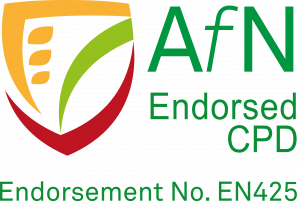
You are welcome to attend individual sessions. CPD certificates will be issued based on length of total time attended.
Many registrants work either directly or indirectly in supporting individuals living with obesity of overweight. Therefore this symposium will provide a helpful update on official strategies, guidelines and care pathways. It is very positive to see that the symposium will cover national and local programmes, alongside the use of digital technology and an update of pharmacotherapy options that members of the public may ask about.
Webinar slides and links to other key resources will be sent within a week of viewing the live webinar, along with a separate personalised CPD certificate to save for your files. Add hello@mynutriweb.com to your safe senders to ensure you receive them.
This webinar is being run in association with the BDA Obesity Specialist Group and The Obesity Health Alliance
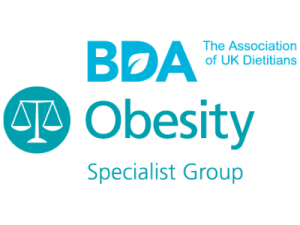 The BDA Obesity specialist group represents dietitians working in adult and childhood obesity prevention and management, recognising obesity as being a specialist area of dietetic practice.
The BDA Obesity specialist group represents dietitians working in adult and childhood obesity prevention and management, recognising obesity as being a specialist area of dietetic practice.
The Obesity specialist group works to communicate evidence-based standards, support post-registration training in obesity management, contribute to national guidelines, campaign for health improvement, and to develop and foster a network of obesity management professionals.
The Obesity Health Alliance
The Obesity Health Alliance is a coalition of 50+ health charities, medical royal colleges and campaign groups.
We work together to positively influence policies to improve population health and reduce diet-related ill health.
Please note, approval of each sponsor and activity is carefully assessed for suitability on a case by case basis. Sponsorship does not imply any endorsement of the brand by MyNutriWeb, its organisers, its moderators or any participating healthcare professional, or their association. Sponsorship funds are reinvested into the creation and promotion of professional development opportunities on MyNutriWeb.
Popular Now

Dr Emily Leeming: Gut-Brain Axis: Food, mood and your gut microbiome

Professor Paul Cotter: Gut microbiota and personalised nutrition: A focus on fermented foods

Nutrition for skin health: practical tips for tricky questions
Feature in a Webinar
Webinar guest experts encompass topics relevant to all professionals and change agents in food and health, across all health and business sectors.
Would you like to feature in a webinar, or propose a guest expert?
Sponsor a webinar
MyNutriWeb offers organisations and brands an opportunity to sponsor topics, gaining valuable insights into the viewpoints of professionals within a moderated environment. If there is a topic that you would like to support please get in touch to discuss.
This website is intended only for students or professionals working in food, nutrition and health. If this is you, please click to continue.

